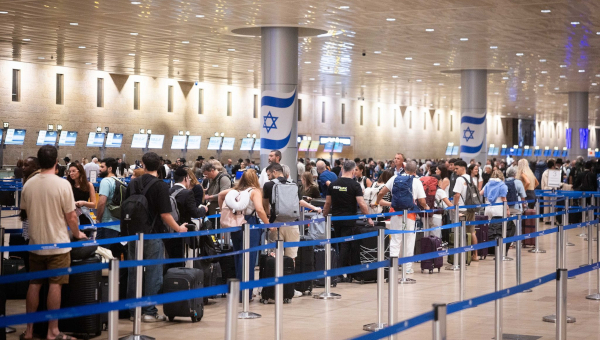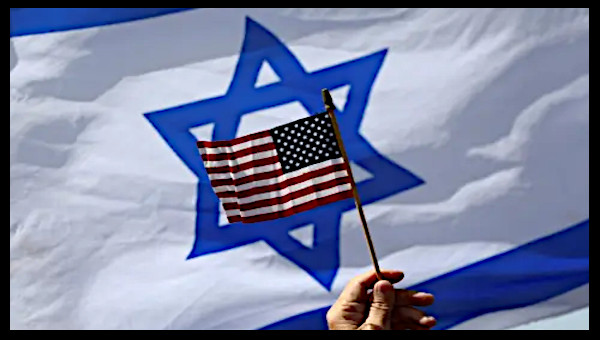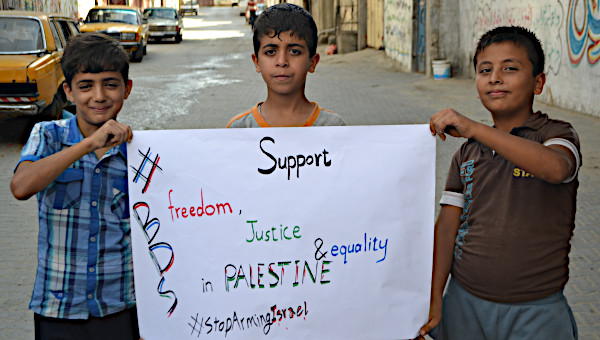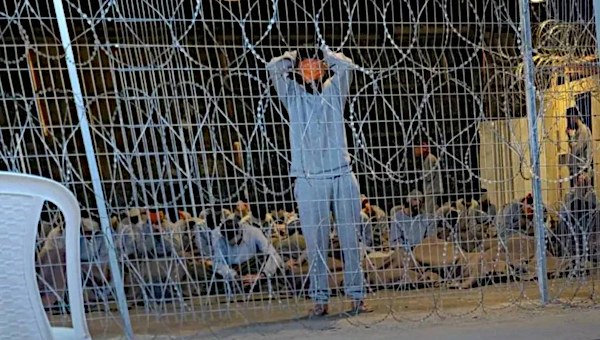Is a New Intifada Coming?
What is written in the mainstream Western and Israeli press this week about the political composition of the new Israeli government offers important insights into the near future. According to a New York Times editorial, “the far-right government that will soon take power, led by Benjamin Netanyahu, marks a qualitative and alarming break with all the other governments in Israel’s 75-year history.”
New York Times columnist Thomas Friedman, who has just returned from a trip to Israel, believes that the new government will be “the most ultra-nationalist, ultra-religious government in the country’s history.” Friedman writes that he is very worried about Israel’s future because “four of the five party leaders of the new coalition government – Netanyahu, Aryeh Deri, Bezalel Smotrich and Itamar Ben-Gvir – have been arrested, charged, convicted or imprisoned for corruption or incitement to racism.”
According to Friedman, the most likely outcome of the policies of the new government is “a complete mess that will make Israel no longer a source of stability for the region and its American ally, but instead a cauldron of instability and a source of concern for the US government.” The editorial is also concerned about Israel’s future and believes that the new government “poses a significant threat to Israel’s future, its direction, security and even the idea of a Jewish homeland.”
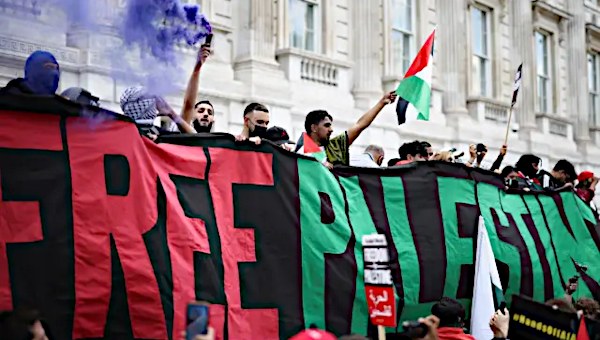
Religious War?
Yaakov Katz, a columnist for the Jerusalem Post, expressed similar concerns in his article. He specifically addressed a legal arrangement in the Israeli Parliament for the aforementioned racist and religious ministerial candidates. Special personal laws were enacted for these individuals who could not become ministers because of their crimes and convictions, paving the way for them to become ministers. Katz wrote that these legal arrangements were “historic” for the country. In his article, Katz drew attention to the danger of “Israel turning into a religious state.”
The Israeli writer Gideon Levy discussed the same subject in Middle East Eye. He had some predictions about the treatment of the Palestinian people by the new government. Levy expressed them: “It is true that the new government, and especially some of its ministers, may take irreversible steps that will further increase inequality, oppression, deprivation, discrimination and Jewish supremacy in all spheres of life. It is also true that the Palestinians living in the occupied territories and the Palestinian citizens of Israel will be the first to pay the price.” Following these predictions, Levy drew attention to a different and important point from the others: “Their lives can certainly change, but let us not forget that their situation has already been intolerable for decades.”
As Levy emphasizes, in many news reports and commentaries, the “intolerable situation for decades” was deliberately ignored. It was as if everything was going well for the Palestinian people, but with the latest developments, a new critical situation had emerged. According to Friedman, who has written at length about his concerns regarding Israel, it was “violence” that “caused a significant number of Israeli Jews from the center-right to move to the ultra-nationalist far right,” i.e., the Palestinian people’s attempt to defend themselves against persecution and oppression under very unequal conditions after decades of severe oppression. In passing, Friedman let slip some basic facts: “For many years, the government has failed to make progress on planning and zoning in the Arab areas of Israel, so that not a single new Arab settlement has been built for dozens of new Jewish settlements.” This is precisely the case, and one of the elements of what he called “violence” is the resistance of Palestinians under the domination of Zionist settlers not to leave their land.
Itamar Ben-Gvir is the leader of the settler Zionists who have been attacking the Palestinian people for decades, confiscating their homes and land with Israeli state support. In a few days, he will be the Minister of National Security, but his criminal record goes back decades and peaked during the years when “normal” Israeli governments were in power. The Zionist project constitutes Israel’s fundamental reality; government changes can never lead to a change in any fundamental aspect of this context. Therefore, according to Gideon Levy, a change of government “is less about a fundamental change of reality, of Israel, than about the removal of its masks and disguises.” This is precisely the case; in fact, Levy says that with the formation of the new government,“the truth about Israel will come to light.” He expresses his wish in all good faith.
For whom will the “truth about Israel” “come to light?” For the world’s peoples, the truth is as clear as day. The most beautiful scenes showing the peoples’ hearts beating together with the Palestinian people were revealed at the last World Cup. Israeli journalists who were refused several interview requests in Doha expressed their disappointment. They expressed their disappointment in a distortion, saying that it had been revealed that Arabs hate Israelis. In fact, not only Arabs but also ordinary people from Asia, Latin America, and Europe boycotted the Israeli press during the World Cup. For more details, see Ramzy Baroud’s article “The Political Side of the World Cup: How Palestine United the Arabs.” Palestine is a symbolic cause not only of the Arab people but of all the oppressed and exploited; no demagogy can change this.
Palestinian Resistance
The real reason for the concerns of the spokespersons of the imperialist West about Israel is not the new government. The real reason is the will to resist that has risen in Palestine in the last few years. In May 2021, what happened in Jerusalem after the provocations of the settler Zionists united the entire Palestinian people. Strong resistance was woven. Aryeh King, one of the leaders of the Zionist settlers who spoke to the US press in those days, was also the Deputy Mayor of Jerusalem. In his speech, he said that demolishing Palestinian homes and expanding Israeli settlers’ areas were “part of a wider strategy of installing ‘layers of Jews’ throughout East Jerusalem.” King defined it as “the way to secure the future of Jerusalem as a Jewish capital for the Jewish people” and added that“If we will not be in big numbers and if we will not be at the right places in strategic areas in East Jerusalem,” then future peace negotiators “will try to divide Jerusalem and to give part of Jerusalem to our enemy.”
All this happened under “normal” Israeli governments. The essence of the matter lies in a statement made many years ago by the first Prime Minister of Israel, David Ben-Gurion. In 1948, during the massacred expulsion of the Palestinian people from their land and the settlement of new settlers on their land, Ben-Gurion, discussing with his cabinet colleagues, saw that some of them were hesitant and said: “We must do everything to insure they (the Palestinians) never do return. The old will die and the young will forget.” These words were one of the most succinct expressions of the Zionist project. The old died, but the new never forgot the old and always remembered it. This simple fact underlies the concerns about Israel’s future.
To better understand the concerns about Israel’s future, it is useful to turn to Friedman. While traveling, Friedman met Khalil Shikaki, the owner of a polling company in Palestine. Shikaki told him the following: “a big change in Palestinian society in the last five years among 15- to 25-year-olds – a radicalization in ways we have never seen before. They are completely different from their parents and grandparents. They no longer trust the Palestinian Authority. They see them as collaborators, and they believe that the only thing the Israelis understand is the language of force.”
Shikaki’s words reveal part of the reality. The trend toward radicalization in Palestine has manifested itself strongly in recent years. The fact that this tendency is “completely different from their parents and grandparents” is simply wrong. The parents, grandparents, and great-grandparents of the new generation also resisted. The vast majority of the Palestinian people participated in the First and Second Intifada.
The political components of the new Israeli government have a clear meaning for the Palestinian people. History is a witness that the just struggle of the Palestinian people cannot be prevented by oppression and violence. Oppression and violence will increase the determination of the Palestinian people to struggle. The footsteps of a new Intifada are being heard. •


